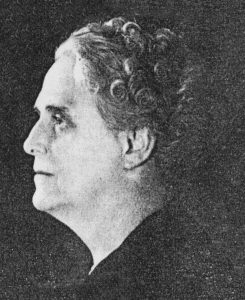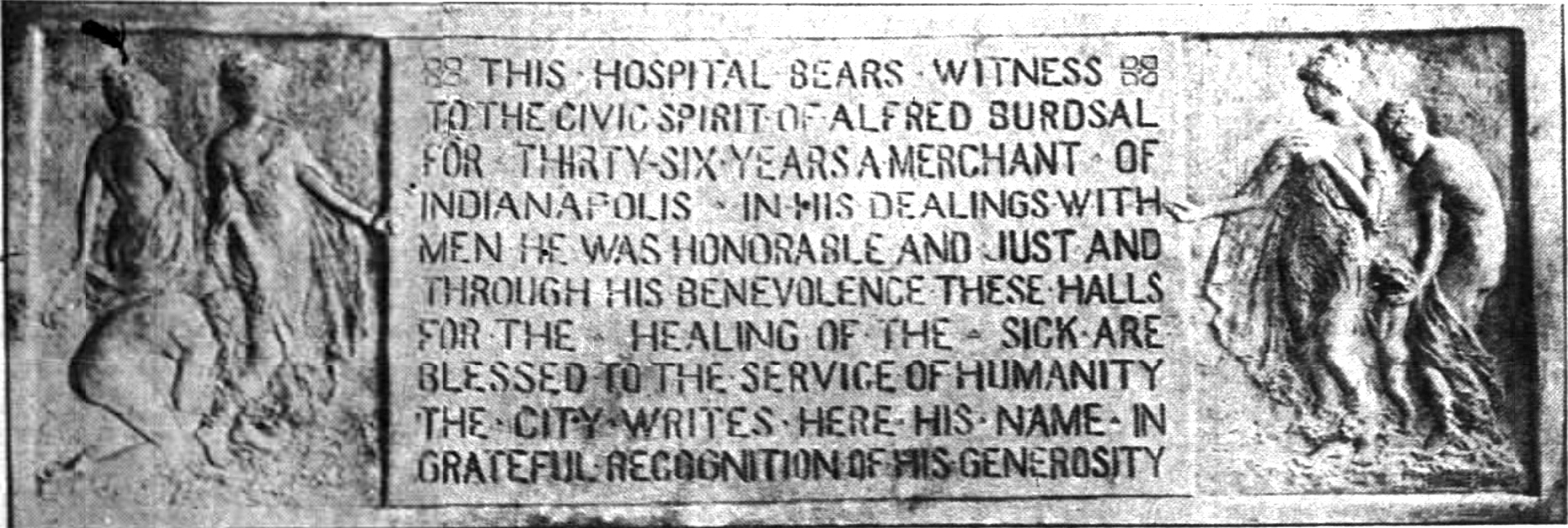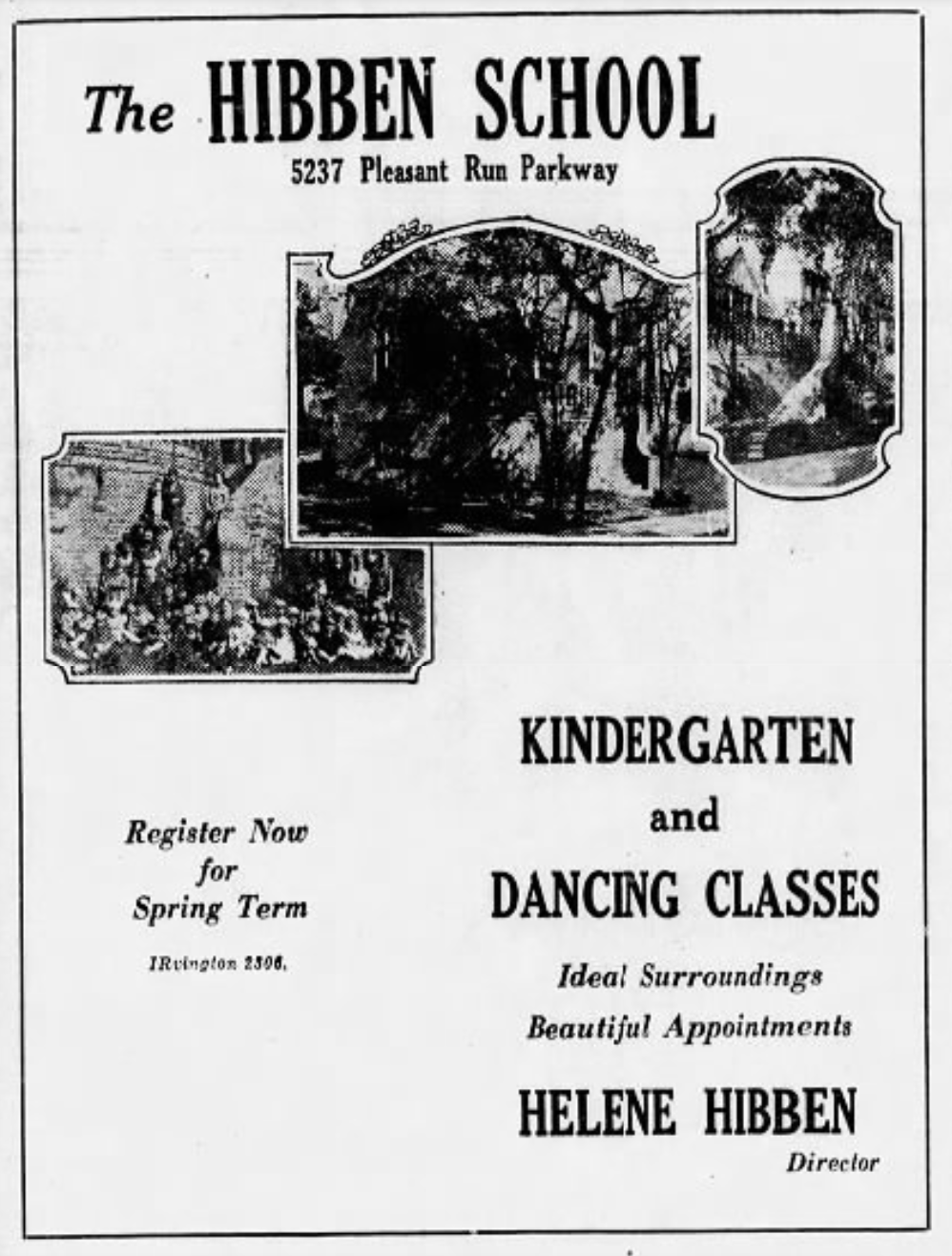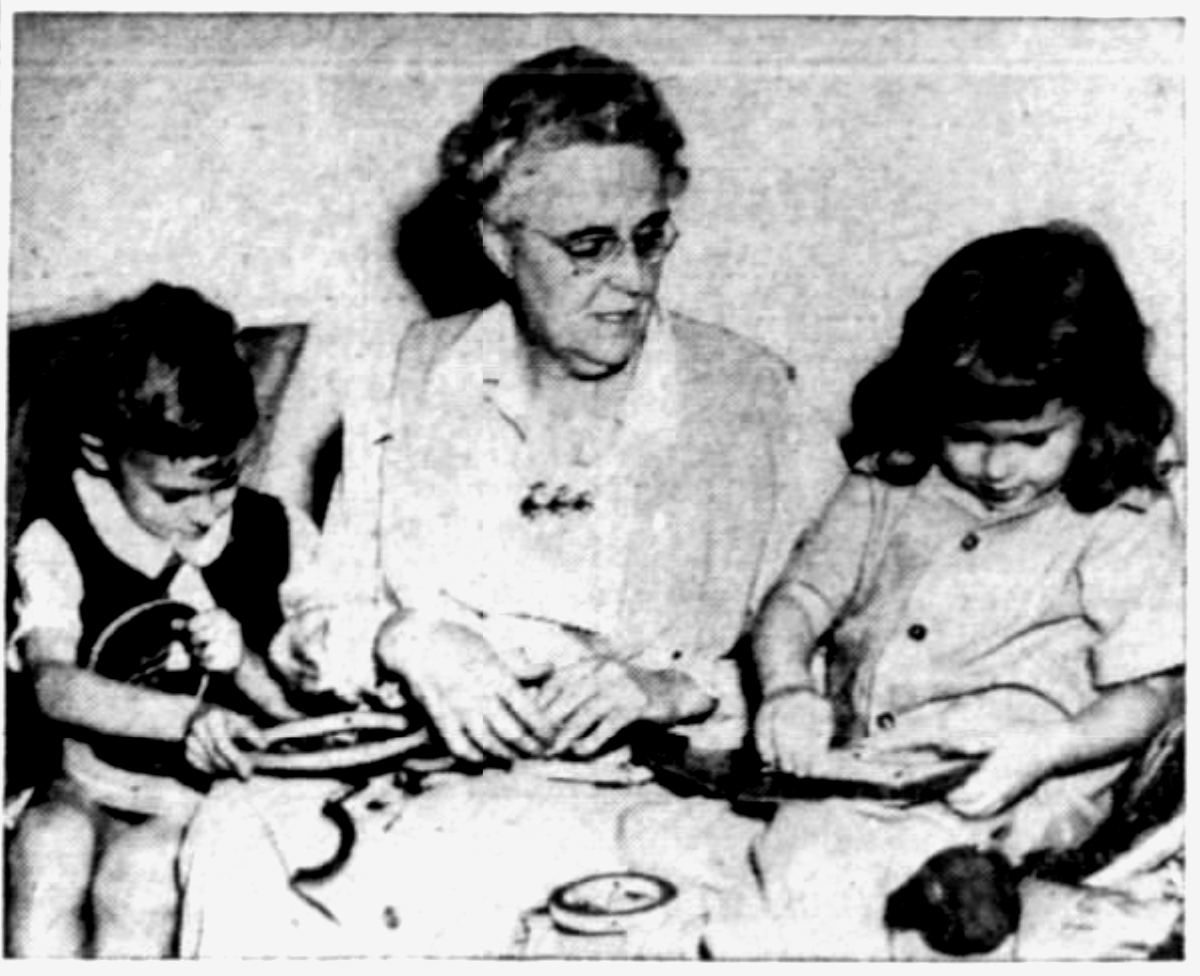
Photo info ...
Credit: George Hibben via Find A GraveView Source
(Nov. 18, 1882–Mar. 18, 1968). Helene Louise Hibben was born in Indianapolis to Thomas and Jennie Hibben. She had four siblings. Her father was a partner in a wholesale dry goods business, Hibben, Hollweg & Co. (later Hibben, Murphy, and Company). He also was an artist, having attended the Indiana School of Art, the earliest school of art in Indianapolis, established by James Farrington Gookins and John Washington Love in 1877. Thomas was the first artist at the and the first to produce etchings in Indianapolis.
Thomas’ love for art passed on to his daughter who, after graduating from , continued her schooling with studies in art and education. She studied painting with artist , with whom her father was a friend and to whom he was a patron. Hibben also studied with two well-known sculptors, Lorado Taft, in Chicago, and James Earle Fraser, at the Art Students League of New York. In addition to art, she also studied early childhood education at the Pratt Institute in New York.
Hibben was a talented artist in many areas including painting, illustration, pottery, and art tiles. She, however, is best known for her work with bronze. She specialized in sculpting miniature busts and bas-relief portraits (a technique in which a design is carved with a shallow overall depth). In 1917, Hibben described her creative process in an interview with an Indianapolis News reporter: “One has to seek for, and portray, not only the face, but the soul within. Sometimes it will escape you for days and then, all at once, you have it.”

Hibben’s work has been featured nationally and locally. In 1911, the Library of Congress archives acquired two of her works, bas-relief portraits of and former Vice President Thomas R. Marshall. She showed her pottery, tiles, and miniature paintings along with some of Forsyth’s work at the Art Center Studio on Market Street in 1913. As a member of the , Hibben’s work was featured at several of the annual artist exhibitions. Outside of showing her work, she also took on private commissions.
In 1914, Hibben was one of 16 Indiana artists chosen to take part in the City Hospital Mural Project. At the completion of two new patient wards, known as the Burdsal Units, St. Margaret’s Hospital Guild, established in 1907 to provide support to patients, started and funded the project to adorn the miles of stark, white walls with murals by leading Indiana artists (See ). Hibben’s contribution was a 3 x 8-foot bas-relief bronze dedication plaque for the door above the Burdsal Units. The plaque depicts two sets of figures, The Spirit of Giving and The Recipients, on either side of an inscription by Indianapolis novelist .

Art was an important part of Hibben’s life, but she was also passionate about childhood education. She taught youth art classes in sculpture and pottery at the . During World War I, Hibben opened her home to help families in need of childcare and provided French lessons to the children. This gave her the idea to establish her own school. In 1917, Hibben and her sister Hazen opened a school in their home at 5433 University Avenue in Irvington. The school began with just six students and focused on teaching etiquette, dancing, and the French language.
The number of new students grew steadily, and within a decade, the school needed more classroom space to accommodate them. In 1926, Helene and Hazen’s brother, Tom Hibben, built them a new home that included four classroom spaces, at 5237 Pleasant Run Parkway. By December 1928, when they finally opened the school in their new home, it had six faculty members, and 120 students enrolled in the school’s many offerings, which included preschool, kindergarten, primary school, dancing, dramatic art, and piano. Hibben taught the school’s kindergarten and dance classes and was known as “Mamselle” to her students. She used her artistic skills to design the educational toys she used in her classrooms.

In addition to running the school and teaching, Hibben also directed many children’s pageants. She was the first director of dancing for the and a founder and president of the Irvington Dramatic Club.

Help improve this entry
Contribute information, offer corrections, suggest images.
You can also recommend new entries related to this topic.